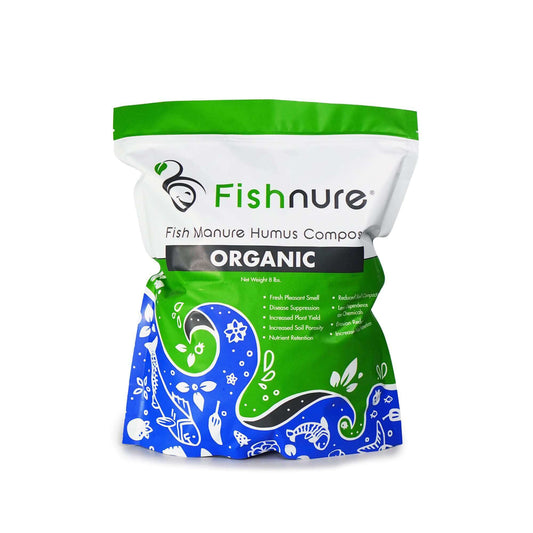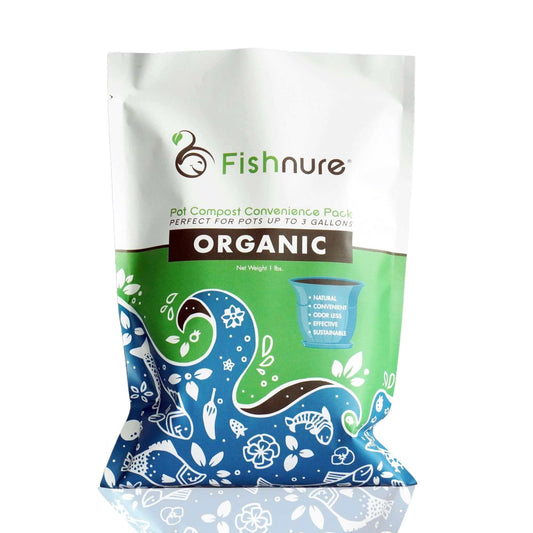
How to Grow Vegetables with Organic Fertilizer: Nurturing Nutrient-Rich Harvests Sustainably
Share
Vegetable cultivation forms the backbone of agriculture across the United States, each state contributing its unique produce based on climate and soil conditions. From the rolling fields of California producing tomatoes to the lush farms of Florida cultivating sweet corn, and from Idaho's potato farms to Arizona's lettuce fields, vegetables thrive as a vital part of America's agricultural tapestry. As the demand for fresh, nutritious, and environmentally conscious produce continues to rise, the practice of growing vegetables with organic fertilizer has gained significant traction. This in-depth article is your comprehensive guide to successfully cultivating vegetables using organic fertilizers. Spanning diverse topics from tailored fertilizer needs to essential growth requirements, advantages of organic fertilization, expert dos and don'ts, managing fertilizer odor, and conducting a cost-benefit analysis, we equip you with the knowledge needed to foster thriving, sustainable vegetable gardens.

Different Fertilizer Needs for Vegetables Versus Other Plants
Vegetables possess distinct fertilizer requirements compared to other plants, mainly due to their accelerated growth rate and heightened nutrient demands. While ornamental plants may necessitate infrequent fertilization, vegetables, cultivated primarily for their edible components, require a consistent supply of nutrients to ensure optimal yields. These nutrients encompass nitrogen, vital for foliage development; phosphorus, pivotal for robust root systems; and potassium, essential for overall plant health.

Important Needs for Vegetable Growth
Unlocking the full potential of your vegetable garden hinges on meeting critical growth prerequisites:
-
Sunlight: Sunlight, a catalyst for photosynthesis, is paramount. Most vegetables thrive with a minimum of 6-8 hours of direct sunlight daily.
-
Water: Watering, a cornerstone of successful vegetable cultivation, requires regularity and adequacy. Under-watering stresses plants, while overwatering exposes them to root rot.
-
Soil: Well-draining, nutrient-rich soil promotes root development, nutrient absorption, and overall plant health.
-
Temperature: Understanding the optimal temperature range for each vegetable is pivotal. Plant during the appropriate season for maximum success.
Benefits of Organic Fertilizer for Vegetables
Incorporating organic fertilizer into your vegetable cultivation regimen reaps manifold benefits:
-
Nutrient Diversity: Organic fertilizers deliver a comprehensive spectrum of nutrients, catering to the multifaceted demands of vegetable growth.
-
Gradual Nutrient Release: Organic fertilizers steadily release nutrients, aligning with the natural pace of plant development. This gradual release prevents nutrient imbalances and reduces the need for frequent applications.
-
Enhanced Soil Health: Organic fertilizers foster improved soil structure, water retention, and microbial activity, creating an optimal growth environment.
-
Eco-Friendly Impact: Organic fertilizers biodegrade naturally, mitigating the risk of nutrient runoff and associated environmental pollution.

Do's and Don'ts of Vegetable Growing
Craft a flourishing vegetable garden using these expert guidelines:
Do's:
-
Soil Analysis: Initiate with a soil test to gauge nutrient levels and pH, which enables you to tailor fertilizer applications to your crops' specific needs.
-
Compost Enrichment: Incorporate compost into the soil pre-planting, augmenting the growing medium with vital organic matter and nutrients.
-
Crop Rotation: Implement crop rotation strategies to avert disease outbreaks and prevent nutrient imbalances. Different vegetables impose varying nutrient requirements.
-
Strategic Mulching: Deploy organic mulch to preserve soil moisture, suppress weed growth, and regulate soil temperature.
Don'ts:
-
Over-Fertilization: Excessive fertilizer application can prompt nutrient imbalances, compromise fruit quality, and endanger the environment through nutrient runoff.
-
Crowded Planting: Avoid overcrowding your plants, as it can stifle air circulation and heighten susceptibility to diseases.
-
Neglecting Pest Management: Employ integrated pest management practices to minimize pesticide application and protect beneficial insects.
How Does Fertilizer Odor Affect Vegetable Growing
Fertilizer odor can exert influence on vegetable growing environments, particularly in indoor settings or densely planted spaces. Organic fertilizers might emit odors as they break down, a natural process. Although these odors typically dissipate over time, they can pose an inconvenience. Mitigate fertilizer odor by:
-
Opting for Low-Odor Fertilizers: Prioritize organic fertilizers with minimal odor to maintain a pleasant growing atmosphere.
-
Ensuring Adequate Ventilation: Proper air circulation and ventilation disperse odors, averting their concentration.
-
Applying at the Right Time: Time your fertilizer applications when you can adequately ventilate the area, diminishing odor impact.
A Cost Estimation Analysis on Growing Vegetables Organically Versus Non-Organics
The economical aspect of organic versus non-organic vegetable cultivation merits consideration. Although initiating organic cultivation might incur marginally higher upfront costs due to premium-priced organic fertilizers, a comprehensive cost analysis tells a different story:
-
Enhanced Yield and Quality: Organic cultivation often yields higher-quality produce, boasting superior taste, appearance, and nutrient content.
-
Soil Health Benefits: Organic practices bolster soil fertility, diminishing reliance on synthetic fertilizers in successive growing seasons.
-
Sustainability Impact: Organic farming contributes to reduced water and soil pollution, securing a sustainable agricultural future.
-
Health Benefits: Consumption of chemical-free produce curbs health risks linked to pesticide residues.

Conclusion
Cultivating vegetables with organic fertilizer harmonizes nutrition, sustainability, and ecological conscientiousness. Armed with insights into vegetables' distinctive fertilizer requirements, crucial growth essentials, organic fertilization's advantages, expert best practices, odor management strategies, and an insightful cost analysis, you're empowered to forge an enduring path towards flourishing, healthful vegetable gardens.
References
-
United States Department of Agriculture. (2021). National Agricultural Statistics Service. USDA.
-
Hartz, T. K., & Johnstone, P. R. (2006). Quality assessment of compost and vermicompost produced from green waste. Journal of Plant Nutrition and Soil Science, 169(2), 228-234.
-
Reganold, J. P., & Wachter, J. M. (2016). Organic agriculture in the twenty-first century. Nature Plants, 2(2), 15221.
-
Seufert, V., Ramankutty, N., & Foley, J. A. (2012). Comparing the yields of organic and conventional agriculture. Nature, 485(7397), 229-232.
-
United States Environmental Protection Agency. (2021). Indoor Air Quality (IAQ). EPA.
-
Alvarez-Suarez, J. M., Quiles, J. L., & Nabavi, S. M. (2010). Potential protective effects of vitamins against oxidative stress caused by pesticides. The Journal of Agricultural Science, 148(6), 683-696.
-
Mie, A., Rudén, C., Grandjean, P., & Vahter, M. (2018). Health risks of organic food in the context of pesticide residues: a systematic review. F1000Research, 7.



